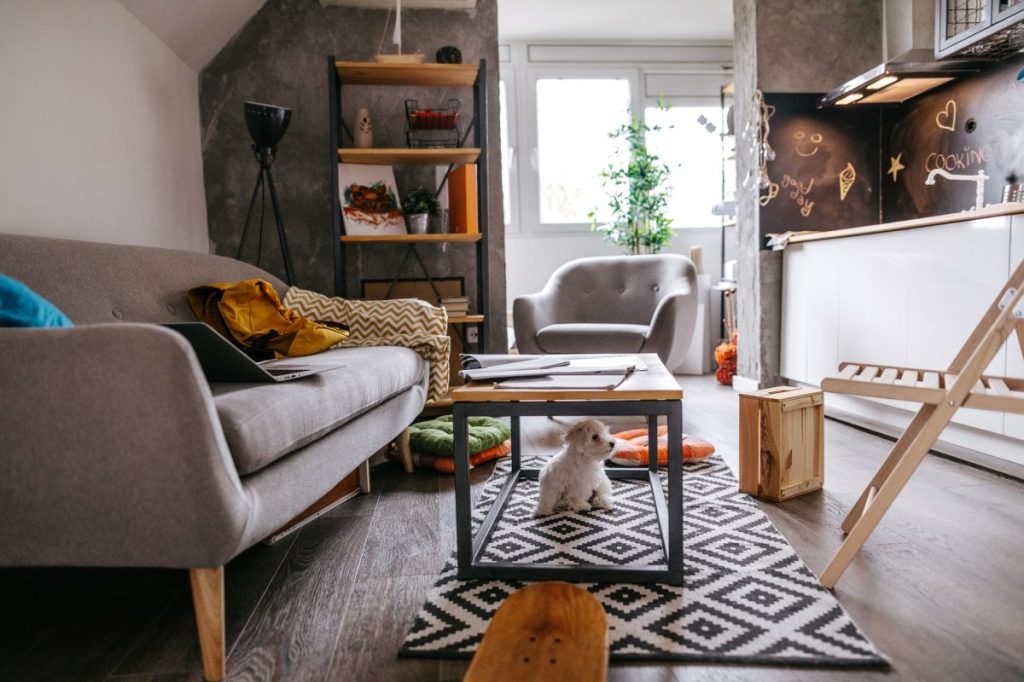Small dogs can make amazing pets, especially if you have a tiny living space or are a first-time dog owner. Unfortunately, many small dog breeds have a reputation for being yappy and excessively barking. To make up for their size, they have no problem letting everyone know they’re still still tough stuff! If you have a small home with neighbors nearby, like a condo or apartment, your dog’s vocal volume can quickly become a problem. However, several small, quiet dog breeds don’t share the noisy Napoleon complex of their petite peers.
Best quiet dog breeds for apartment living
Forget the yapping and woofing! If you prefer the pitter-patter of paws over resounding barks, these small, quiet dog breeds might be your perfect match. Plus, your apartment neighbors will thank you for having a low-maintenance, relaxed pet who doesn’t exacerbate the downsides of communal living, like increased noise and foot traffic through common areas. Meet some of our favorite soft-spoken little pups.
Affenpinscher
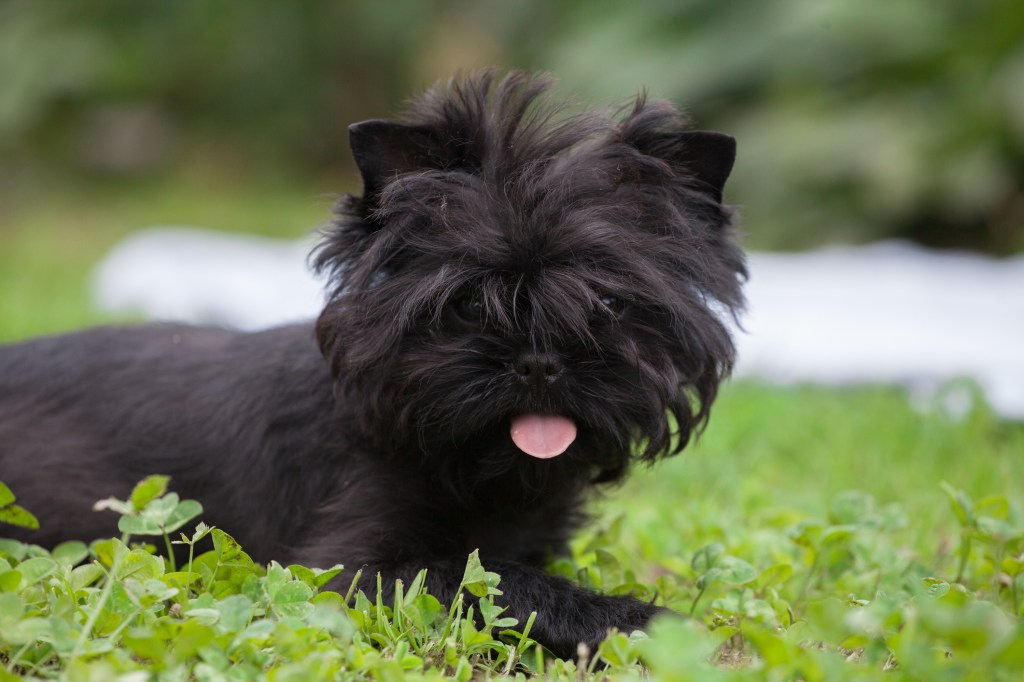
The Affenpinscher, also known as the “Monkey Dog” — thanks to the German word “affen” for ape or monkey — packs a punch of personality. These feisty little terriers are brimming with energy and love to have fun. While they’ll occasionally let out a bark, Affenpinschers are generally a quiet dog breed, especially with proper training. Affectionate with their humans, they might not be the best fit for young children or boisterous play. Standing at a petite nine to 11 inches tall and weighing just seven to nine pounds, the Affenpinscher is a perfect cuddle buddy for apartment living.
Basenji
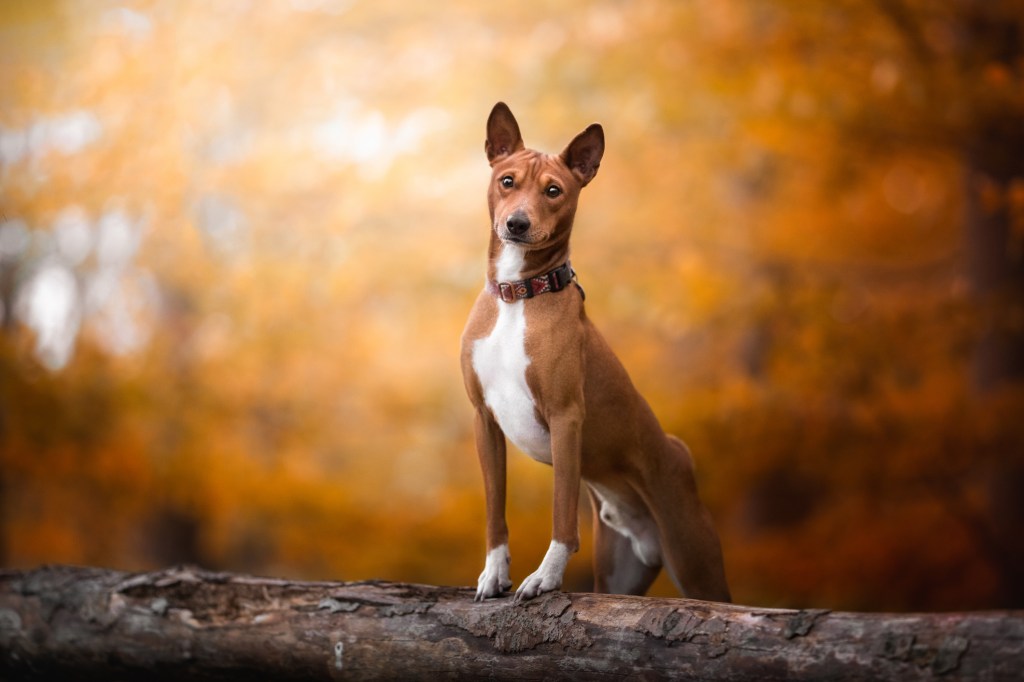
Well known as the “barkless” dog from Africa, the Basenji attracts admirers with their short coat, small, muscular body, alert demeanor, erect ears, and tail curled tightly over one hip. They do, however, have an infamous stubborn streak. Novice pet parents, beware! Basenjis may sometimes be categorized as a medium dog breed but are small enough to adapt to apartment life. They stand between 16 to 17 inches tall at the shoulder and weigh between 22 and 24 pounds.
Basset Fauve de Bretagne

Basset Fauve de Bretagnes are generally friendly with everyone but will let you know if a stranger approaches the door. They’re not meant to be watchdogs, but they are tough and will protect their families no matter what. They can get along with everyone in the household but might chase after smaller pets. Basset Fauve de Bretagne tend to be 12 to 15 inches tall at the shoulder and weigh 25 to 35 pounds, so some of the larger ones may approach the size of a medium dog breed.
Bichon Frise

A popular small white pup, the Bichon Frise is a well-known quiet dog breed whose looks are enhanced by a perky, good-natured disposition. Bichons generally get along well with other animals and people but will alert you when strangers come to the door. As such, this breed makes one of the best apartment dogs for renters. This friendly small dog stands nine to 11 inches tall at the shoulder and weighs seven to 12 pounds.
Cavalier King Charles Spaniel

The Cavalier King Charles Spaniel might or might not bark when someone comes to the door, so they’re a poor choice as a watchdog. There are exceptions, of course. Some Cavaliers will inform you of every event in your neighborhood and bark ferociously when strangers approach. Despite this, you’re better off buying an alarm system than counting on your Cavalier to alert you to trouble.
Coton de Tulear

A favorite of silver screen celebrities like Barbara Streisand and Jane Fonda, the Coton de Tulear is a shining star of the small dog breeds. When your doorbell rings or someone knocks on your unit door, the Coton may bark once, then politely accompany you to the door to greet your guest. The only risk a housebreaker faces is being licked to death. They like to “talk” to their people, using their own particular language of unique vocalizations, including grunts and growls. That said, they don’t generally bark just for the fun of it. Coton de Tulears are usually eight to 12 inches tall at the shoulder and weigh eight to 13 pounds.
Dandie Dinmont Terrier
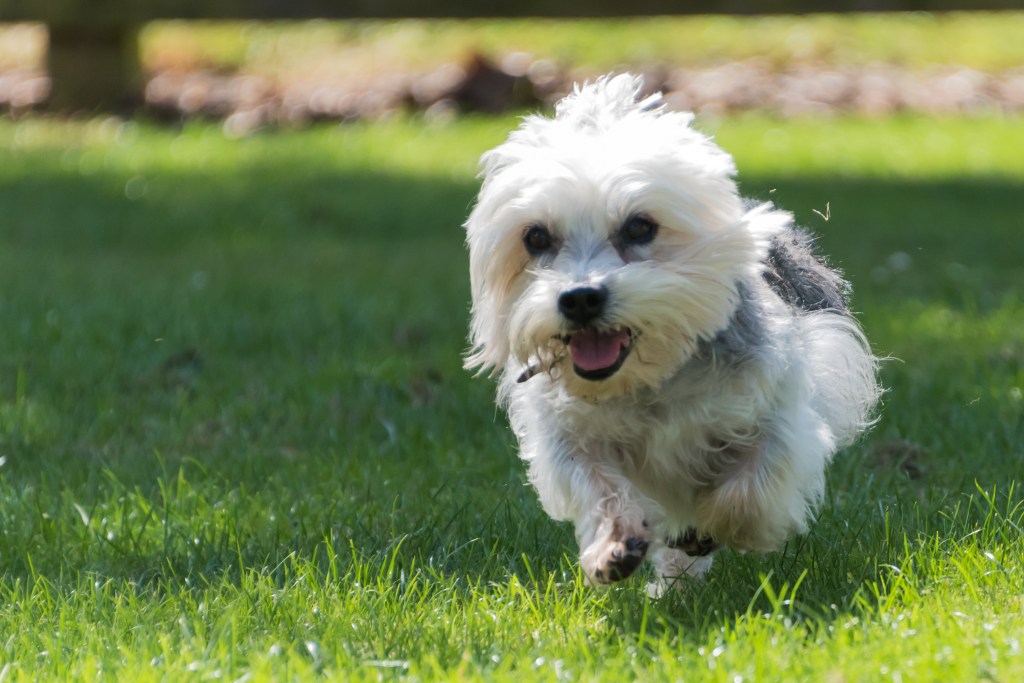
These short pups have long bodies. The length of a Dandie Dinmont Terrier, from the top of their shoulders to the base of their tail, is almost twice their height. Because Dandies are reserved dogs, they are not “barkers,” as are most of their terrier cousins. Dandies will bark when necessary, and their bark is deep and loud. They don’t seem to think it’s proper to keep barking after the alarm has been duly noted. Dandie Dinmont Terriers are eight to 11 inches tall at the shoulder and weigh 18 to 24 pounds.
Havanese

A truly unique breed, the Havanese loves to watch the world from up high and will find their way onto the backs of sofas and tables to watch the day pass. They’ll probably bark when they see someone passing the apartment or hear a strange noise. However, the good news is that they don’t bark just to listen to their own voice. These pups stand eight to 11 inches tall at the shoulder and weigh seven to 13 pounds.
Japanese Chin

In general, the Japanese Chin is a happy and charming small dog who is affectionate and intelligent. They’re talkative but not barky. Chin people say their dogs like to “sing” and will chatter to announce the arrival of guests or strangers. Chins are so sensitive to their environments and the emotions of their people that they’ve been known to shape their personality around them. If they live in a quiet residence, the Chin will become reserved — making them a standout in a list of best apartment dogs. Alternatively, they’ll keep the action lively if they live in an active home. They grow to be eight to 11 inches tall at the shoulder and weigh only four to nine pounds.
Lancashire Heeler

The Lancashire Heeler is an intelligent and quiet dog breed that learns quickly, but they have a mind of their own and can be stubborn and mischievously inventive. They can find creative ways to escape, so they’ll need a secure home and access to a yard. If you can find an apartment in a house with accessible green space, that would be ideal. No matter, some apartment complexes do have designated pet relief areas.
Generally, Lancashire Heelers are friendly with other people but can be sharp toward other dogs. Ensure they have early socialization training, and you’ll have a loving, fairly quiet companion. These pups can be around 10 to 12 inches tall at the shoulder and weigh 13 to 15 pounds.
Papillon
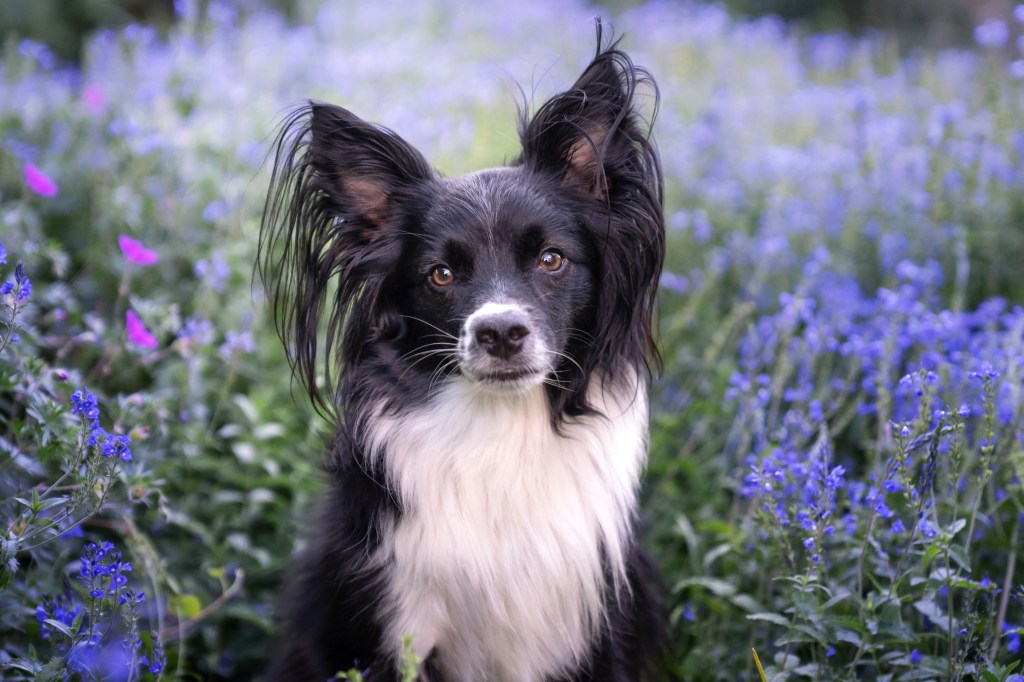
Reports from pet parents vary when it comes to how often Papillons bark. They tend to sound off when they hear or sense something out of the ordinary, so they may bark a bit if they move to a new home with new sounds. However, once they’re used to their environment and well-trained, they don’t vocalize just for fun. They’ll remain calm and quiet unless they need to alert you of what they think might be dangerous. Papillons are eight to 11 inches tall at the shoulder and weigh a tiny four to nine pounds.
Pug

While Pugs can be good watchdogs, they aren’t inclined to be “yappy,” which is something your neighbors will appreciate. Because they are a small, quiet dog breed and relatively inactive indoors, they are one of the best choices for apartment dwellers. That said, Pugs need constant human companionship. Accordingly, this dog breed is great with young kids and families. If you adopt a Pug, expect them to follow you around in the house, sit in your lap, and want to sleep in bed with you. These dogs tend to stand 10 to 14 inches tall at the shoulder and weigh 14 to 18 pounds.
Shih Tzu

This may be a controversial addition to the list, as some Shih Tzus do, in fact, bark quite a bit. Perhaps not the most quiet dog breed, the Shih Tzu can be suspicious of newcomers on their turf and will be alert if needed. However, these pups are so affectionate and friendly that the second a person walks in your door or stops to pet your pup, the Shih Tzu will greet them as a new friend. So even if they make some noise, it tends to fade into love and licks in no time. Shih Tzus can be nine to 10 inches tall at the shoulder and weigh nine to 16 pounds.
Benefits of small, quiet dogs
While adopting a small dog or quiet dog breed might not have been your initial plan, these soft-spoken pups offer some compelling advantages, especially for apartment dwellers. A quiet dog means less barking and more tranquility for those seeking a peaceful home environment. Similarly, if a good night’s sleep is important to you, a less vocal canine companion can help ensure you get those coveted eight — or more — hours.
Small dogs aren’t just easier to care for daily; they can also be easier on your wallet. Their smaller size means they typically eat less food, require less grooming, and may even need more affordable preventative medications than larger breeds. Many small dog breeds also tend to be healthier overall and have longer lifespans, giving you more years to enjoy your faithful companion.
